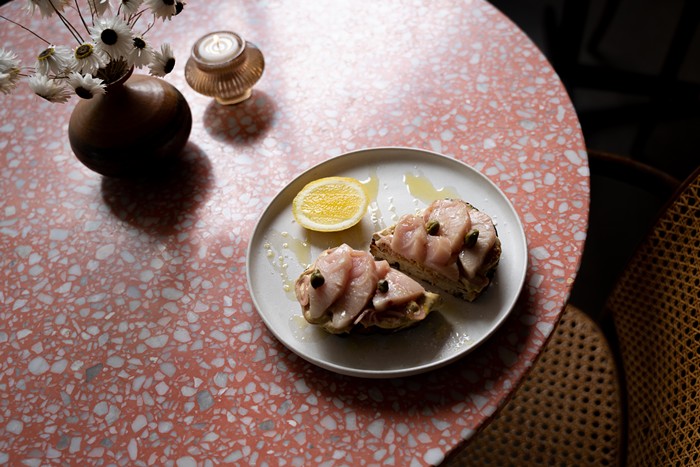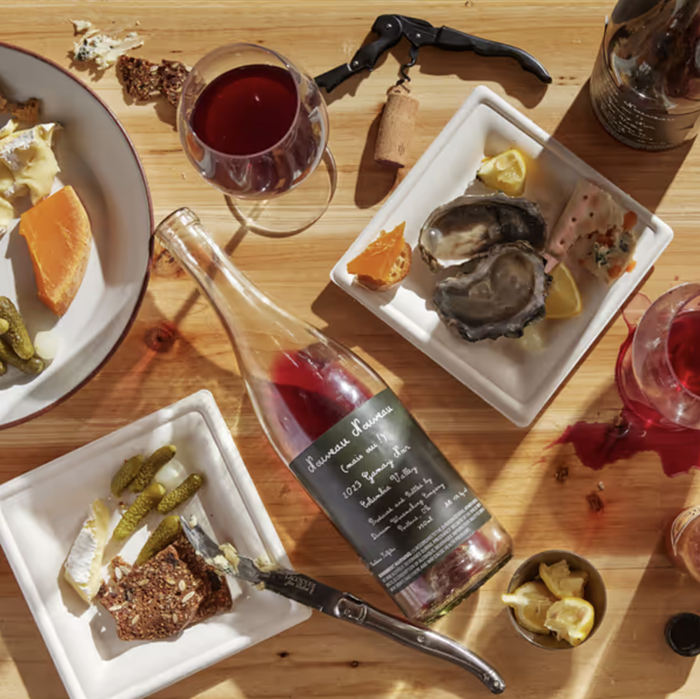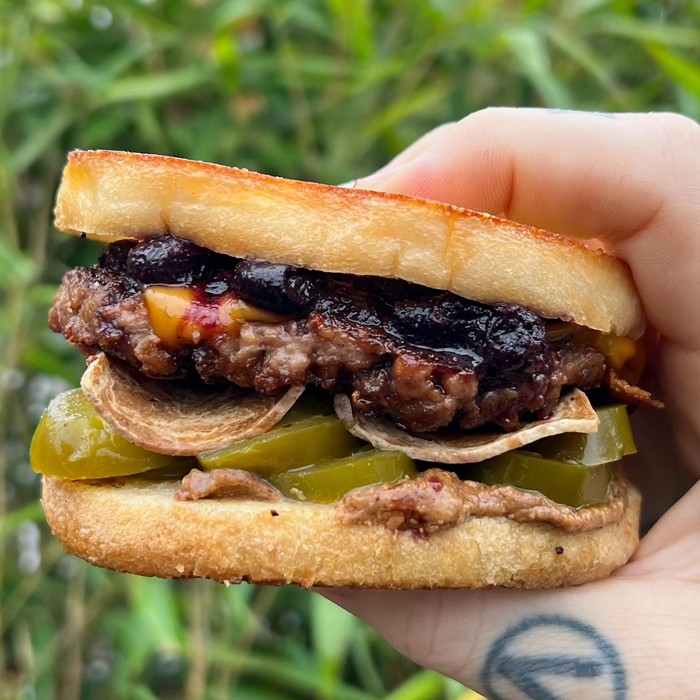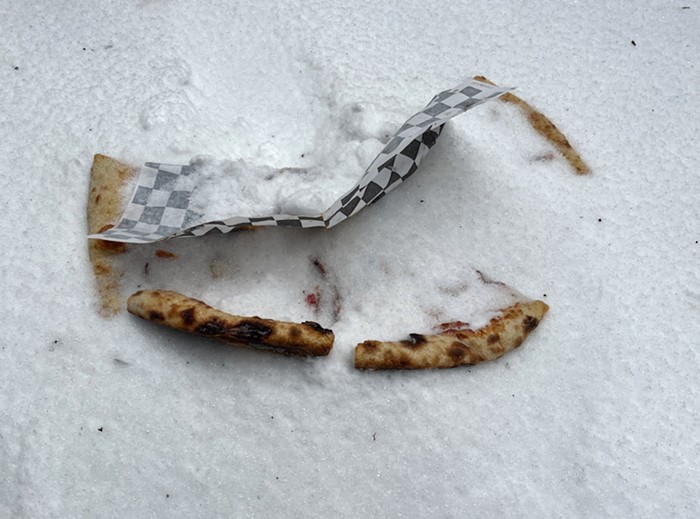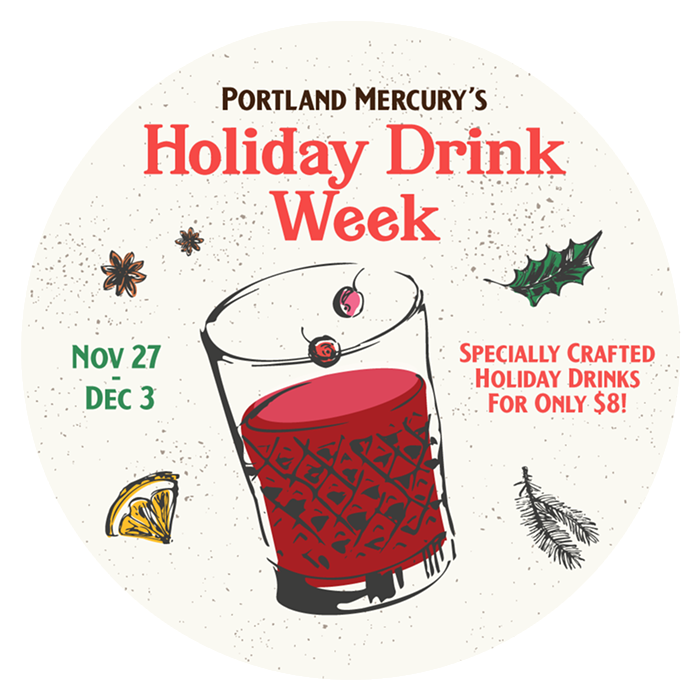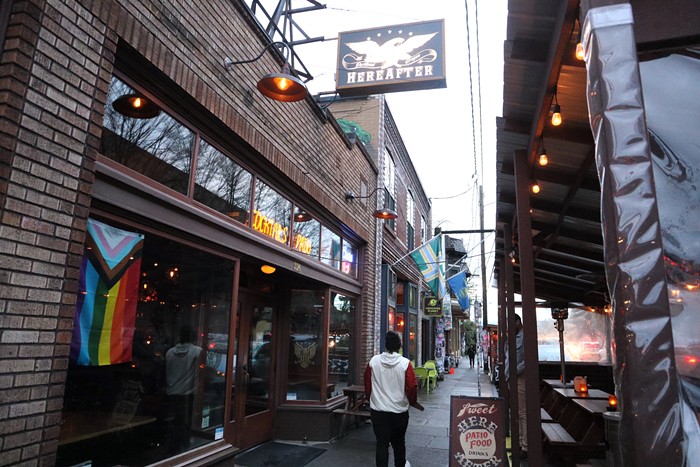IF STARBUCKS opened the door for Stumptown, then Stumptown—by giving us a vocabulary of "single origins," "direct trade," etc.—has readied, at least Portlanders, for smaller artisanal roasters.
Someone (though not me, goddammit) is probably throwing around the term "Fourth-Wave Coffee" as we speak; microroasters—like Coava, Courier, and Heart among others—are capitalizing on the more discerning drinkers that Stumptown helped create. It's not quite accurate to call this a whole new generation; they're more like admiring younger brothers—willing to pay their dues and give credit, and eager to make their own way.
But if anyone is going to break out, my money's on Coava (pronounced "koh-va," which means "green coffee" in Turkish).
Owners Matt Higgins and Keith Gehrke (longtime friends who cut their teeth together as baristas) are the kind of obsessives that used to be found only in the wine world—if you're going to talk coffee with Higgins, a background in organic chemistry will serve you well. The shop is housed inside of Bamboo Revolution, and to say that Coava has an industrial feel is an understatement—tables are repurposed drill presses and bench saws. Appropriately, industriousness and attention to detail have produced what might turn out to be the ace up their sleeve.
In October of last year, Gehrke ran out of paper filters for his Chemex (an hourglass-shaped device used for pour-over coffee—the duo's preferred brewing method, and the one they planned to use in their café). Concerned with the amount of waste that paper filters would produce in his new shop (and sick of buying them), he experimented with the mesh reusable models already on the market. Unsatisfied, he set about on his own design.
Like any good tinkerer, he went into the project without quite knowing where it would take him. He settled on stainless steel and a true symmetrical shape (something the mesh versions lacked). He tested different hole patterns and made sure the filter floated within the Chemex's glass walls, as not to block filtration. It took eight prototypes and hiring a professional engineer before they got it right, but just days before Coava's opening, Higgins and Gehrke had a tool that set them apart from every shop in Portland, and, likely, the world—a photochemically perforated cone filter made of weapons-grade steel.
The Kone wasn't just a gimmick for gadget geeks and coffee snobs (though they'll love it), but a device that allowed the two men to highlight the traits and flavors they take great pains to produce in their sourcing and roasting. There's no doubt in my mind that, for Higgins and Gehrke, Coava begins and ends with making a really great cup of coffee. The success and notoriety that's beginning to snowball with their filter design is a truly organic necessity-as-the-mother-of-invention-type development.
The Kone produces coffee somewhere between what you'd expect from a paper filter and a French press. It doesn't strip the coffee of its oils (and thus flavor) the way a paper filter does, but it reduces the amount of sediment you're stuck with when using a French press. Pour-over coffee offers greater control for the barista, and a fresher cup for the customer (French-pressed coffee usually sits in air pots until you order).
Though the intent was just to create a product for use at Coava, customers and fellow industry types started making inquiries. But as the two were committed to using domestic steel and American labor they figured others wouldn't be willing to shell out the kind of money that would make it worth their while. When Duane Sorenson of Stumptown showed some interest, however, they decided it would be worth a shot. They ordered 1,000, priced them at $50 a pop, and soon orders (thanks in part to positive press from the New York Times and Gizmodo) were coming in faster than the factory could make them. Higgins and Gehrke doubled down and, earlier this month, put out a second product. The Disk is made with the same materials and hole pattern as the Kone, but fits inside an AeroPress. Orders started coming from the UK and Australia, and within a week, it was well on its way to selling out.
Even as they usher these products into the market, Higgins and Gehrke insist that their primary interests are working with farmers to source great beans, and then roasting the best coffee they can. They're happy with the size of their operation—in fact, there's something of a ceiling on it. Smaller batches mean a more consistent product and many of the farms they're buying from couldn't produce much more than Coava's already ordering. So while there are a handful of other cafés serving their coffee, Higgins and Gehrke are not trying to compete with Stumptown in the wholesale market. Instead, their focus remains on brewing perfect single cups... but then, for Coava, single-cup coffee could very well turn into big business.

